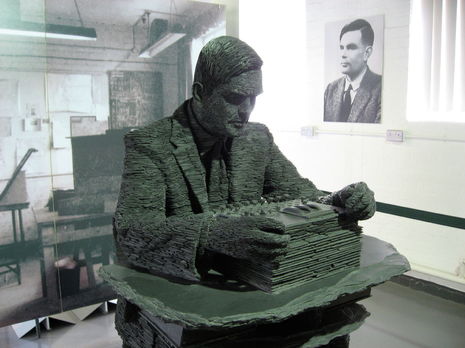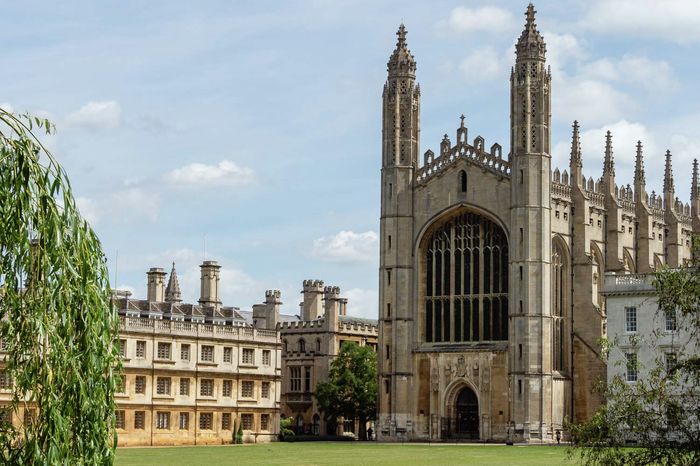Design of £50 Alan Turing note revealed
The new note will begin circulation in June of this year

Content Note: this article contains brief mention of sexuality-driven prosecution and suicide
Details about the design of the new British £50 note featuring Cambridge alumnus Alan Turing have been announced today (25/03), following the Bank of England's announcement in 2019 that Turing would feature on the new note.
The King’s College mathematician worked at the Government Code and Cypher School at Bletchley Park during the Second World War and is credited with deciphering the Enigma Code, for which he was awarded an OBE in 1946.
The Bank of England website emphasises that Turing also “set the foundations for work on artificial intelligence by considering the question of whether machines could think.”
The £50 note is the last of the notes to move from paper to polymer, a process which began with the £5 note in September 2016.
Turing joins former prime minister Sir Winston Churchill, the author Jane Austen, and artist J.M.W. Turner, the faces of the £5, £10 and £20 notes respectively.
The new £50 note featuring Alan Turing is coming on 23 June 2021. Find out about its design and security features: https://t.co/nbOlU9kgCU #TheNew50 pic.twitter.com/FhPBJAVFP6
- Bank of England (@bankofengland) March 25, 2021
The design on the reverse of the note features several details celebrating Turing and his work, including: technical drawings for the British Bombe, one of the machines used to break Enigma-enciphered messages; formulae from Turing’s seminal 1936 paper ‘On Computable Numbers, with an application to the Entscheidungsproblem’, and a flower-shaped red foil patch mirroring the image of a sunflower head linked to Turing’s study of patterns in nature in his later life.
His post-wartime work took the form of the study of mathematical logic and the theory of types - including a 1950 paper on artificial intelligence entitled ‘Computing Machinery and Intelligence’ - alongside continuing to supervise students at King’s College.
The note also features a quote from a 1949 interview that Turing gave to the Times: “This is only a foretaste of what is to come and only the shadow of what is going to be.”
The spy agency GCHQ also today (25/03) released their “most difficult puzzle ever,” taking the form of 12 riddles linked to elements of the £50 note, starting with a crossword-style puzzle featuring questions about Turing’s work.
GCHQ chiefs also apologised once more for their postwar treatment of Turing, who was prosecuted for indecency in 1952 in light of his relationship with a man at the time. Turing committed suicide two years later, and was awarded a royal posthumous pardon in 2013.
GCHQ director Jeremy Fleming said: “Turing was embraced for his brilliance and persecuted for being gay. His legacy is a reminder of the value of embracing all aspects of diversity, but also of the work we still need to do to become truly inclusive.”
 Features / Beyond the porters’ lodge: is life better outside college?24 February 2026
Features / Beyond the porters’ lodge: is life better outside college?24 February 2026 Theatre / Footlights Spring Revue? Don’t Mind if I Do!25 February 2026
Theatre / Footlights Spring Revue? Don’t Mind if I Do!25 February 2026 News / Cambridge academics sign open letter criticising research funding changes22 February 2026
News / Cambridge academics sign open letter criticising research funding changes22 February 2026 News / Student and union protesters hold ‘Trans Liberation Solidarity Rally’ 24 February 2026
News / Student and union protesters hold ‘Trans Liberation Solidarity Rally’ 24 February 2026 Fashion / The evolution of the academic gown24 February 2026
Fashion / The evolution of the academic gown24 February 2026











